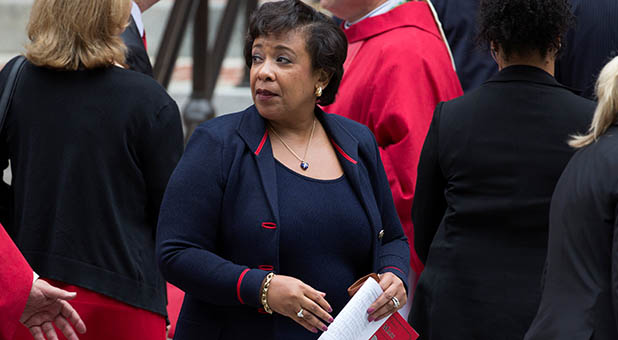Committee Chairmen to Attorney General: ‘This Is Simply Astonishing’
Wednesday, the chairmen of the House Oversight and Government Reform Committee, Senate Judiciary Committee, House Judiciary Committee and House Permanent Select Committee on Intelligence issued a letter to the U.S. Department of Justice.
In that letter, chairmen Jason Chaffetz (R-Utah), Chuck Grassley (R-Iowa), Bob Goodlatte (R-Va.) and Devin Nunes (R-Calif.) demanded additional information on the “unusual restrictions” placed on the FBI in its investigation of Democratic presidential nominee Hillary Clinton’s use of a private email server while secretary of state. Specifically, they are concerned about “side deals” granted to former Clinton staffers Cheryl Mills and Heather Samuelson.
In the letter, they state, in part:
We write to express our concerns about the process by which Congress was allowed to view the Wilkinson letters, that the letters inappropriately restrict the scope of the FBI’s investigation, and that the FBI inexplicably agreed to destroy the laptops, knowing that the contents were the subject of Congressional subpoenas and preservation letters.
These limitations would necessarily have excluded, for example, any emails from Cheryl Mills to Paul Combetta in late 2014 or early 2015 directing the destruction or concealment of federal records. Similarly, these limitations would have excluded any email sent or received by Secretary Clinton if it was not sent or received by one of the four email addresses listed, or the email address was altered.
Further, the Wilkinson letters memorialized the FBI’s agreement to destroy the laptops. This is simply astonishing given the likelihood that evidence on the laptops would be of interest to congressional investigators.
The Wilkinson letters raise serious questions about why the DOJ would consent to such substantial limitations on the scope of its investigation, and how Director Comey’s statements on the scope of the investigation comport with the reality of what the FBI was permitted to investigate.
The letter includes a series of questions, which Attorney General Loretta Lynch has been instructed to answer by no later than Oct. 19. They want to know what legal authority was used to allow the destruction of evidence that was part of a congressional investigation, whether or not the laptop computers in question were actually destroyed, and why the side deals specifically identify efforts to circumvent the Freedom of Information Act.
















































